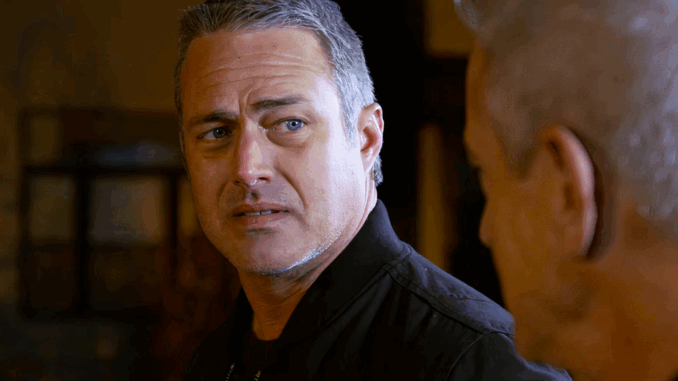
The Fire That Wasn’t Just Onscreen
Season 13 of Chicago Fire didn’t just wrap up another year of flames and rescues—it ignited a heated debate across fan communities about whether the show is still being allowed to burn as brightly as it should. With a finale that felt unusually restrained and a storyline that begged for more time to breathe, many are now asking: did NBC’s behind-the-scenes budget cuts quietly reshape the show’s creative direction?
What started as a tightly wound season filled with layered character arcs and high-stakes calls ended with a finale that, while emotionally potent, seemed rushed in parts and incomplete in others. And as more details emerge about NBC’s controversial renewal conditions, fans are connecting the dots between business decisions and storytelling compromises.
A Finale Full of Smoke and Unanswered Questions
At the center of the finale was the high-stakes investigation into Chief Pascal, a storyline that brought veteran characters into moral conflict. Severide, ever the lone wolf with a deep sense of justice, put himself on the line to prove Pascal’s innocence—ultimately confronting dangerous players like Bishop and Hendricks to root out the truth.
The pacing was tense, the stakes real—but then the episode cut to black before many of those tensions could be fully resolved. Fans expected fallout between Severide and Van Meter, closure for Pascal’s career, and perhaps a reckoning inside Firehouse 51. Instead, we were left with narrative embers instead of the blaze we anticipated.
It’s no surprise that fan forums have been filled with comments like:
“Where was the rest of the story? I kept waiting for a final punch and it never came.”
“The episode felt like a setup for something that never arrived. Is this really how they wanted to end the season?”
NBC’s Renewal With Strings Attached
Last month, NBC made headlines by renewing Chicago Fire, Chicago P.D., and Chicago Med—but not without controversy. As part of a network-wide cost-cutting strategy, all three shows were renewed with conditions: shorter seasons, fewer episode appearances for main cast members, and no salary increases for returning actors.
Behind closed doors, sources suggest that creative teams were told to “tighten scripts,” scale down action scenes, and write around absences to accommodate these new limitations. In this light, the Chicago Fire finale begins to make more sense—not as a failure of storytelling, but as a product of logistical restraints.
Severide in the Spotlight—But For How Long?

If there’s one performance that salvaged the episode for many fans, it was Taylor Kinney’s Severide. His prison conversation with Bishop was among the season’s most intense and morally murky moments. Severide was calm, calculating, and subtly threatening—a man willing to dance with the devil to save someone he believes in.
But even Kinney’s return to the show this season was structured around offscreen compromises. After missing part of Season 11, Kinney’s Season 13 arc was strong—but clearly built to accommodate flexibility. Will he return full-time for Season 14? NBC hasn’t confirmed.
Some fear that these negotiations may mean less of Severide in the long run—or worse, a slow exit built into next season’s storyline.
Fan Theories, Fallout, and What Comes Next
In the absence of narrative closure, fan theories have exploded. Some believe Pascal may resign quietly next season to avoid long-term legal scrutiny. Others predict that Van Meter may be replaced or promoted—creating room for a new internal antagonist. A few even suggest that Severide could be written out slowly, with Stella Kidd rising as the new team leader.
The real uncertainty lies in how Season 14 will unfold under tightened constraints. If NBC continues reducing cast appearances and episode orders, the show may pivot toward smaller, character-driven stories rather than the high-octane spectacle it’s known for.
But this may not be entirely bad. For many longtime fans, Chicago Fire’s most memorable moments weren’t explosions—they were conversations in the truck bay, glances between partners, and quiet heroism in the face of impossible choices.
Can the Fire Burn Bright Again?
Despite all the behind-the-scenes shifts, Chicago Fire remains one of NBC’s crown jewels—still ranking high on streaming charts and pulling in a fiercely loyal audience every week. Its legacy is unmatched in the network procedural world, and it continues to deliver emotionally rich storylines that resonate with working-class viewers and emergency responders alike.
What Season 14 must do now is find its voice again under new constraints. That means doubling down on character development, making every minute of screentime count, and ensuring that the family at Firehouse 51 remains as compelling as ever—even if the structure around them is changing.
Conclusion: The Heat Is Still On
Season 13 ended not with a bang, but with a question. Chicago Fire remains a powerhouse, but the realities of television economics have changed the way that power is expressed. For now, fans are left watching the smoke, wondering whether the next fire will burn as brightly as the last.
One thing is certain: as long as there’s a call to answer, Firehouse 51 will be ready. But who shows up—and how often—is a story still waiting to be told.